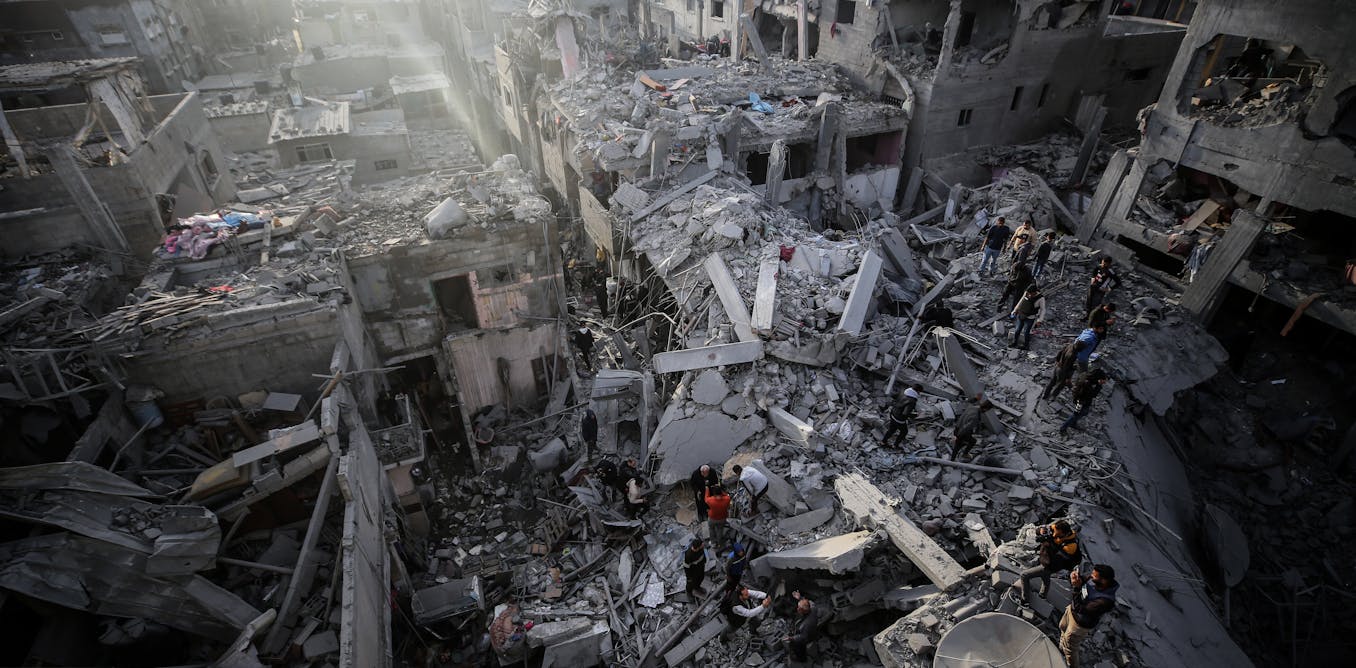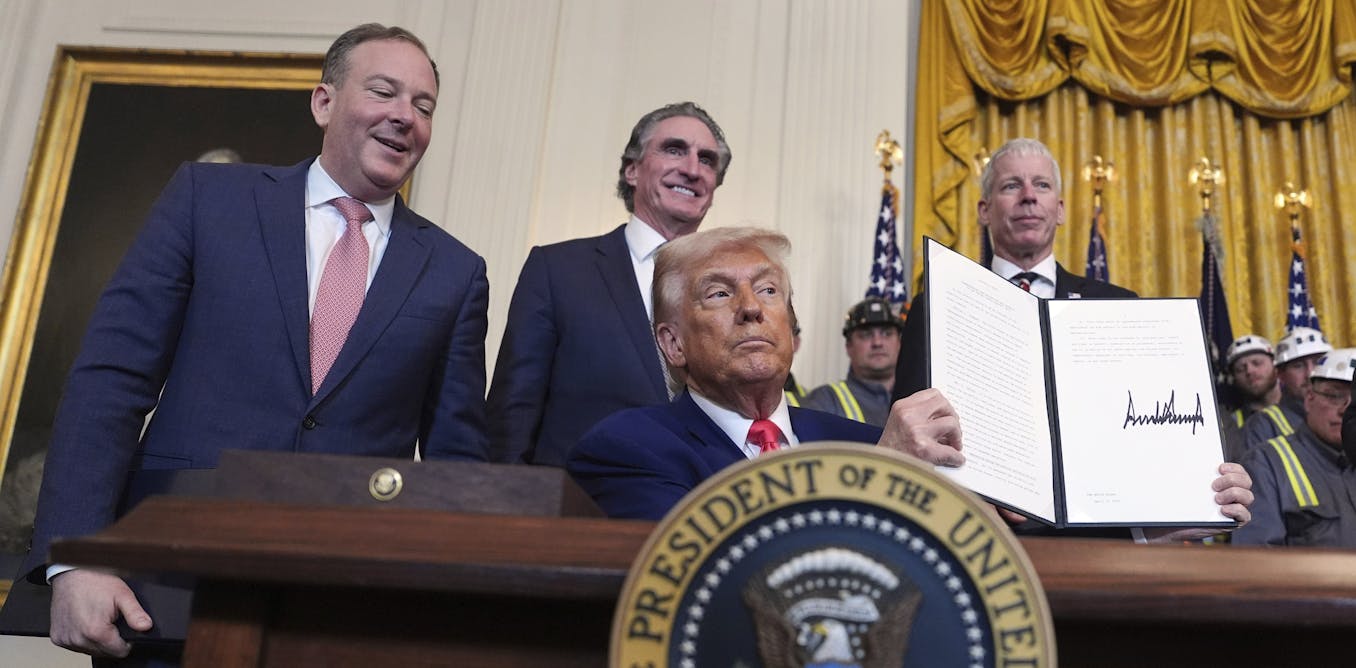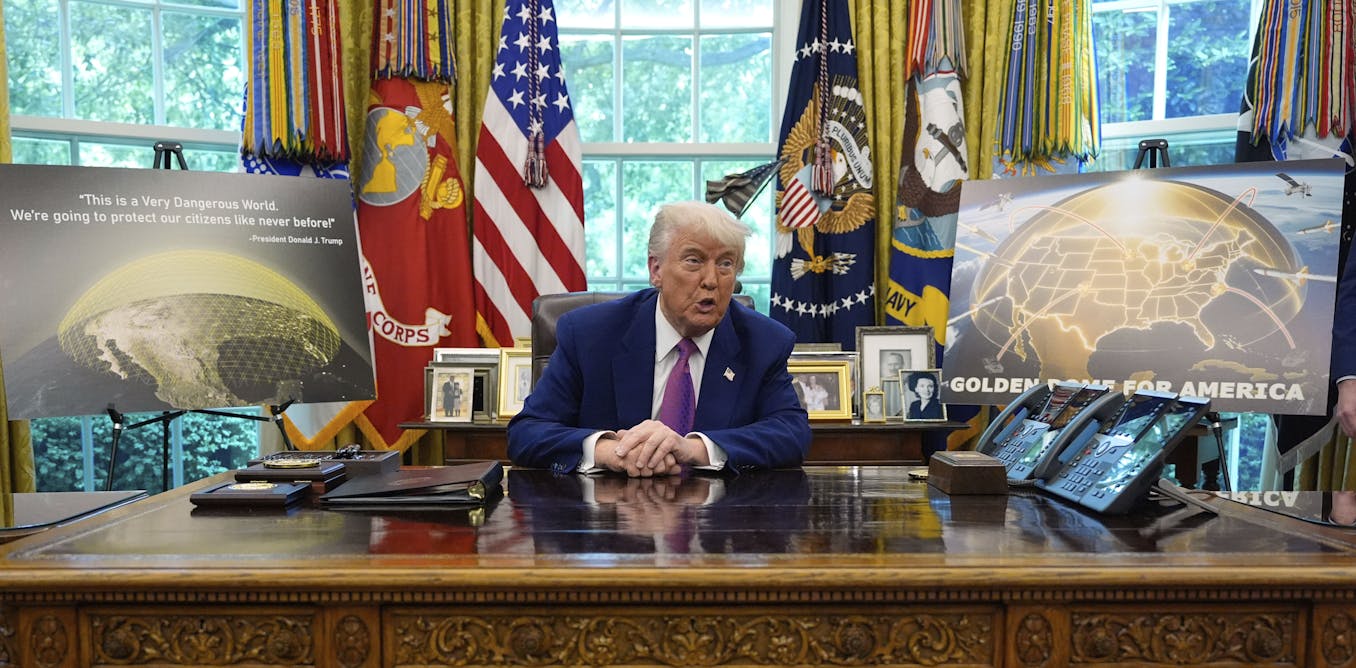In early December 2024, Hamas announced a major concession: It was prepared to cede future governance of Gaza to a unity Palestinian committee, working alongside its chief political rival, Fatah, to create the body.
Fatah, the party of Palestinian Authority President Mahmoud Abbas, has since expressed hesitancy about such an arrangement – which, in any event, would face stern opposition from Israel and likely the U.S., too.
.
But the fact that Hamas would strike such a deal with a faction it took up arms against for the right to govern Gaza in the first place points to the militant group’s weakened position after more than a year of Israel’s devastating war in Gaza.
Israel’s recent ceasefire agreement in Lebanon has further damaged Hamas’ prospects by curbing Hezbollah’s direct support in Gaza and by extension that of Iran – leaving it even more isolated.
Hemmed in on all sides, Hamas has, from my observations as an expert on Palestinian politics, shifted its calculus for a post-Gaza war world. That it was Egypt pushing for a Fatah-Hamas deal is also noteworthy, as what ultimately transpires in terms of Gaza’s governance will likely hinge on the wishes of the governments in Cairo and Israel, both of which sees Gaza as the backyard of its national security.
An Egyptian plan for Gaza
Egypt, with tacit support from the United States, has been focused on what a future Palestinian political arrangement in Gaza might look like. To try to address this security and governance vacuum, Egypt convened the leaders of both the Fatah movement and Hamas in early December in hopes of establishing a governing committee to take over Gaza’s governance once the war ends.
In Cairo, Egyptian mediators proposed the establishment of a community support committee to be made up of Palestinian professionals and technocrats not affiliated with Fatah or Hamas. Abbas, who as leader of the Palestinian Authority has governance powers in the West Bank, subject to Israeli approval, would need to approve the committee.
Hamas’ quick acceptance of the Egyptian formula points to a group facing a far different security and organizational environment than it did prior to the escalation of conflict with Israel.
Shifting regional dynamics
When Hamas launched its attacks on Oct. 7, 2023, it did so knowing it could rely on active military support from its Hezbollah allies in neighboring Lebanon and ongoing financial and diplomatic cover from Iran.
Fast-forward 14 months, the position of Tehran’s so-called “Axis of Resistance” looks far more tenuous. Hezbollah and Israel’s months of tit-for-tat violence along the Israeli-Lebanese border escalated into full-scale warfare that saw Israel expand its brutal military campaign into southern Lebanon. Hezbollah emerged from that fight severely wounded, having lost numerous members of its leadership to Israeli bombs.
The subsequent Nov. 26 ceasefire has effectively taken Hezbollah out of the Gaza conflict.
Meanwhile, Iran, which has exchanged rounds of missile volleys with Israel, has thus far been keen to outsource direct confrontation against Israel to its Hamas and Hezbollah proxies, seeking to avoid a prolonged military engagement with Israel.
With that regional military support curtailed, Hamas also finds itself facing a changed diplomatic landscape.
Since 2012, Qatar has hosted Hamas’ political leadership under an agreement with the United States. The small Gulf nation has since acted as a mediator between Hamas and Israel and the United States, which refuse to negotiate with the group directly.
But in early November, Qatar announced it was suspending its role in mediating Gaza peace talks, citing dissatisfaction with the process, though it has since suggested talks may be regaining momentum and that it was once again mediating.
In any case, U.S. officials have recently pushed Qatar to shutter its Hamas political office, and remaining Hamas political operatives there have reportedly decamped to Turkey.
Qatar is also eyeing a changed U.S. political scene, where an incoming Republican-led Congress and President-elect Donald Trump are likely to exert an even harder line on Hamas having any kind of political base outside of Gaza.
Decimated, both militarily and politically
Alongside increasing isolation, Hamas has also sustained deep operational damage in the course of the Gaza war.
The recent Israeli killing of Hamas leader Yahya Sinwar caused a vacuum at the very top. That came after Israel had already killed much of the senior military and political Hamas leadership in Gaza, not to mention high-profile political leaders outside of Gaza such as Hamas political leader Ismail Haniyeh, who was assassinated in July in Iran.
It’s not even clear who makes up Hamas leadership in Gaza as of December 2024, aside from Sinwar’s brother, Mohammed, who is a member of the military wing of Hamas. Nor is it clear whether Hamas members outside of Gaza can even communicate with leaders within.
For now, prominent Hamas leader Khalil al-Hayya has been involved in the talks with Fatah in Egypt. However, the executive committee of the Palestine Liberation Organization – of which Fatah is the dominant faction – rejected the Egyptian proposal.
That doesn’t mean the proposal is necessarily dead in the water – just that Egypt will have to work with Fatah leaders to address their concerns.
A depleted movement eyes the future
While Hamas has been weakened militarily and politically, there is also little chance that Hamas will not remain an ideologically potent force, capable of drawing support from the many Palestinians in Gaza, as well as the West Bank and the broader Palestinian diaspora.
But as a governing entity, Hamas appears to be a spent force for the foreseeable future – something that members of the group readily acknowledge.
Pedro Pardo/AFP via Getty Images
The recent Egyptian-hosted Palestinian talks, however fitfully, point to how any long-term future for Gaza – or the Palestinians as a whole – requires a more cohesive Palestinian political leadership.
Indeed, one shortcoming of the latest Egyptian plan is that it does not unite the Palestinians under a unified government, because the governing entity proposed will be responsible only for overseeing the Gaza Strip.
And trust between Hamas and Fatah remains low, as it has ever since Hamas took over the Gaza Strip in June 2007 following a violent confrontation with Fatah.
Yet even if Hamas and Fatah would agree on a unity government, the broader reality is that cannot happen so long as Israel and its international allies, chiefly the United States, oppose it.
For his part, Israeli Prime Minister Benjamin Netanyahu has repeatedly stated that neither the Palestinian Authority nor Hamas will play any role in the day after the war.
When the war is over
Yet apart from a permanent Israeli military occupation, it’s hard to see what options exist for Palestinians going forward absent some unification in Palestinian politics.
When Hamas won a major victory in Palestinian legislative elections in January 2006, it was in no small measure due to Fatah divisions, corruption, widespread dissatisfaction with what the Oslo peace process had delivered and little sign for future progress toward a Palestinian state.
Almost 20 years later, none of those realities has meaningfully changed.
The devastation in Gaza has only compounded the humanitarian crisis and the difficulty of charting a long-term solution. Yet when the war in Gaza does come to an end, there will be no option but for Arab countries, including Egypt, the U.S. and the wider international community to help Palestinians in the enclave rebuild and seek some measure of security. The Palestinians who live there cannot afford another governance failure.




